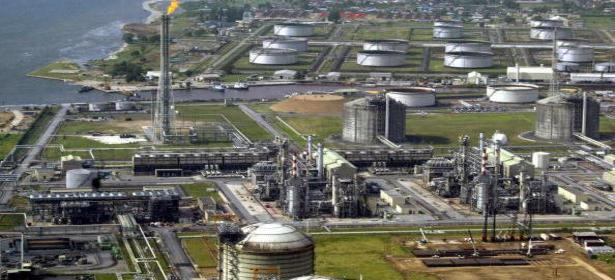As Nigeria’s economy is rocked by the fallout of accusations that the national oil company has stolen billions from federal accounts, the likelihood that the government will dig into oil accounts, as promised, looks dim.
The Nigerian government’s claims that they will conduct a forensic audit of the country’s national oil company’s books is doing little to inspire confidence, following credible allegations that the organisation stole at least $20bn from public accounts. Nigeria is Africa’s largest oil producer, and a major supplier to the US.
Though a government spokesperson announced on March 12 that President Jonathan had “authorised the engagement of reputable international firms for the recommended forensic audit of Nigerian National Petroleum Company (NNPC) accounts,” no firm has yet been named to supervise the process. This lack of clarity has contributed to skepticism that President Jonathan’s administration lacks the political capital to clean up the country’s notoriously opaque energy sector – the largest in Africa – in the lead up to an election year.
Nigeria has a weak track record on addressing corruption, and it looks that this case – despite the high levels of attention accusations levelled by former central bank governor Lamido Sanusi have garnered – will be no exception.
“Considering [the government’s] actions to date, I take it as a delaying tactic and a report – even if carried out authoritatively – will be swept under the rug once finished,” Steve Levine, a leading commentator on energy geopolitics and a Fellow at the New America Foundation, tells This is Africa.
Indeed, immediately after Mr Sanusi leaked his claims in February that a vast graft infrastructure within the NNPC was skimming billions in public funds from federal accounts to the Financial Times, President Jonathan ousted the governor – some argue in violation of the constitution – alleging “financial recklessness and misconduct” during his tenure at the central bank. The move has eroded confidence in the independence of Nigeria’s fiscal institutions from political maneuverings in Abuja.
“An audit will not lead to fundamental reform, though the administration will likely make some symbolic gestures, probably aimed at lower ranking officials or firms that are not especially well connected,” says Philippe de Pontet, head of Eurasia Group’s Africa Practice.
The intractability of corruption within Nigeria’s extractives sector and the public institutions that govern it is by no means a new story, though the weight of Mr Sanusi’s credibility has made this round of accusations more difficult to shift than most.
With the 2015 federal elections looming nearer, however, entrenched political interests have even less of an incentive to dig into the NNPC’s books.
“Campaign fundraising is closely linked to oil revenues, and so the timing for a real crackdown is not ripe as the long election season heats up,” Mr De Pontet explains.
Nevertheless, the NNPC corruption scandal have sent shockwaves through Africa’s fastest growing economy, with the Naira tumbling in value following the announcement of the governor’s abrupt departure and reserves falling to a twelve month low of $39.7bn as the central bank tries to stabilise the currency and fend off rumors of a possible devaluation.
International investors, meanwhile, are growing nervous – though whether this will be enough to scare off a hardened group accustomed to Nigeria’s mercurial political landscape is unlikely.
“It will be business as usual,” Mr Levine says. “Sadly, the opportunity to finally clean up Nigeria’s vast oil corruption appears to have been squashed from the top.”.”Because it’s so mysterious we can’t be sure that it’s confined to a small narrow band of people – in fact we think that there’s a very strong likelihood that it is actually going into the legal market,” Ms Katsouris said.




